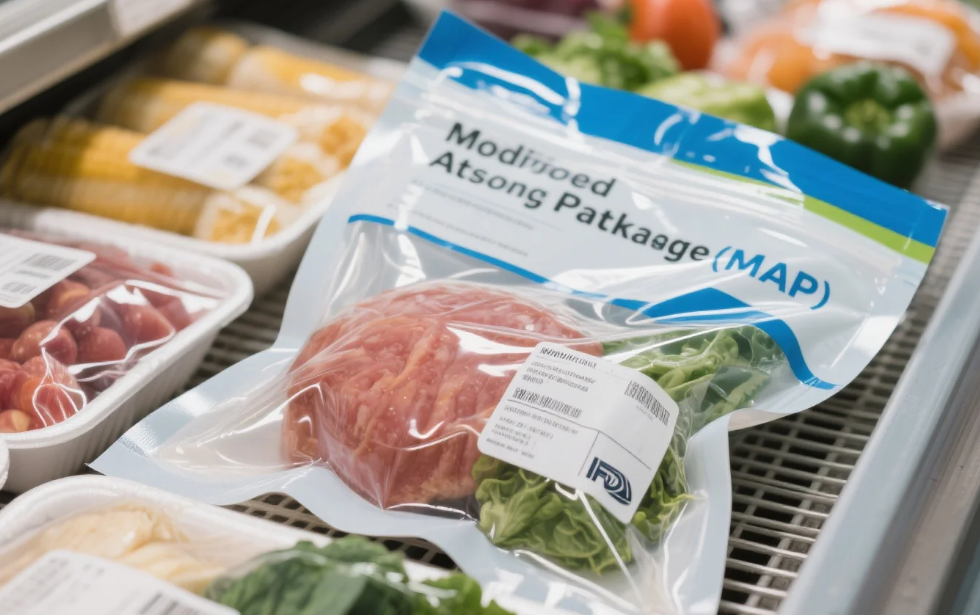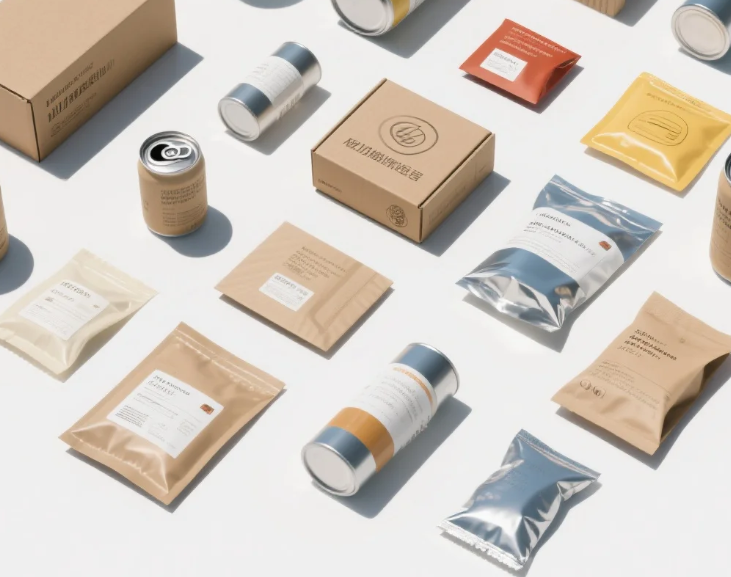Modified Atmosphere Packaging (MAP) is a food preservation technology that extends the shelf life of perishable products by altering the gaseous atmosphere inside a package. By replacing ambient air with a controlled mix of gases, such as nitrogen, carbon dioxide, or oxygen, MAP slows oxidation, microbial growth, and respiration, preserving freshness, flavor, and texture. According to the FDA, MAP involves actively or passively modifying the atmosphere within a package made of various films to optimize conditions for food storage. This technology, used for over 90 years, is critical for meeting consumer demand for fresh, minimally processed foods with extended shelf stability.
MAP is implemented using advanced food packaging machines, such as vertical form fill seal machines, which ensure precise gas flushing and sealing. The technology supports a globalized food market, enabling products to travel longer distances while maintaining quality.

MAP encompasses active and passive techniques, each tailored to specific products and packaging needs:
Active MAP involves displacing oxygen with gases like nitrogen or carbon dioxide. Nitrogen flushing, a common method, reduces oxidation and microbial growth, extending shelf life for products like coffee and snacks. This process, supported by vertical packing machines, maintains package integrity and product conformity.
Passive MAP relies on specialized films, such as polyethylene (PE) or polypropylene (PP), with low permeability to oxygen and moisture. These barrier packaging films create a natural modified atmosphere through product respiration and gas diffusion, ideal for fresh produce.
Oxygen scavenger or desiccant packs absorb moisture and oxygen, reducing spoilage. Often used in pharmaceuticals and snacks, these packs complement food packing machines that ensure tight seals.
One-way valves, common in coffee packaging, release gases like carbon dioxide without allowing ambient air in. These valves, integrated by vertical pouch filling machines, prevent package bursting while preserving freshness.

MAP is widely used across food categories, addressing diverse preservation needs:
Fresh-cut fruits and vegetables, sensitive to oxidation, benefit from nitrogen flushing and barrier packaging films. MAP extends shelf life by 10–14 days for products like salads and up to six weeks for pre-sliced apples, meeting consumer demand for convenience.
High-oxygen MAP maintains the red color of beef, while low-oxygen MAP with carbon dioxide inhibits bacterial growth in poultry and seafood. Vertical form fill and seal machines ensure precise gas mixtures for these applications.
Coffee roasters use one-way valves to release carbon dioxide, preserving bean freshness. Snack producers employ nitrogen flushing and barrier films to prevent rancidity, supported by food packaging equipment for high-speed production.
In the legal cannabis industry, nitrogen flushing prevents THC degradation, ensuring product potency. Automated vertical filling machines integrate MAP for consistent packaging.
MAP offers significant advantages, including extended shelf life (50–200% longer), reduced food waste, and minimal use of preservatives. It supports global distribution and meets consumer preferences for natural, fresh products. However, challenges include microbial risks, such as anaerobic bacteria growth, requiring hurdle technologies like temperature control. Selecting appropriate packaging materials and food packaging machines is critical to ensure gas permeability and package integrity.
Since 2020, MAP has evolved with sustainability and automation driving innovation. In 2021, biodegradable films like PLANTIC™, made from renewable starch, gained traction for MAP applications, reducing plastic waste. Smart packaging with sensors for freshness and temperature, and antimicrobial coatings emerged by 2023, enhancing safety. In 2025, Coveris introduced a board-based MAP tray for meat, reducing plastic by 90%.
Automation has surged, with vertical form fill seal machines incorporating IoT for real-time gas monitoring, cutting waste by 15%. by 2024. The global MAP market is projected to reach $10 billion by 2030, driven by demand for fresh, sustainable packaging.
HIJPACK Machine, a leading vertical form fill seal machine manufacturer, is at the forefront of MAP implementation, offering advanced food packaging machines at https://www.hijcoffeepack.com/. Their vertical packing machines support active MAP with nitrogen flushing and passive MAP with barrier films, delivering speeds up to 100 bags per minute. Compatible with sustainable materials like biodegradable polymers, HIJPACK’s vertical form fill and seal machinery ensures precision for coffee pouches, snack bags, and produce trays. With competitive pricing and robust packaging machine troubleshooting, HIJPACK empowers food producers to adopt MAP for extended shelf life and consumer satisfaction, reinforcing its leadership in the food packaging industry.
Modified Atmosphere Packaging has revolutionized food preservation, enabling longer shelf lives and fresher products for global markets. With advancements in sustainable materials and smart technologies, MAP continues to evolve, supported by advanced packaging equipment. HIJPACK Machine’s innovative solutions ensure food producers can leverage MAP to meet modern consumer demands, paving the way for a fresher, more sustainable future.